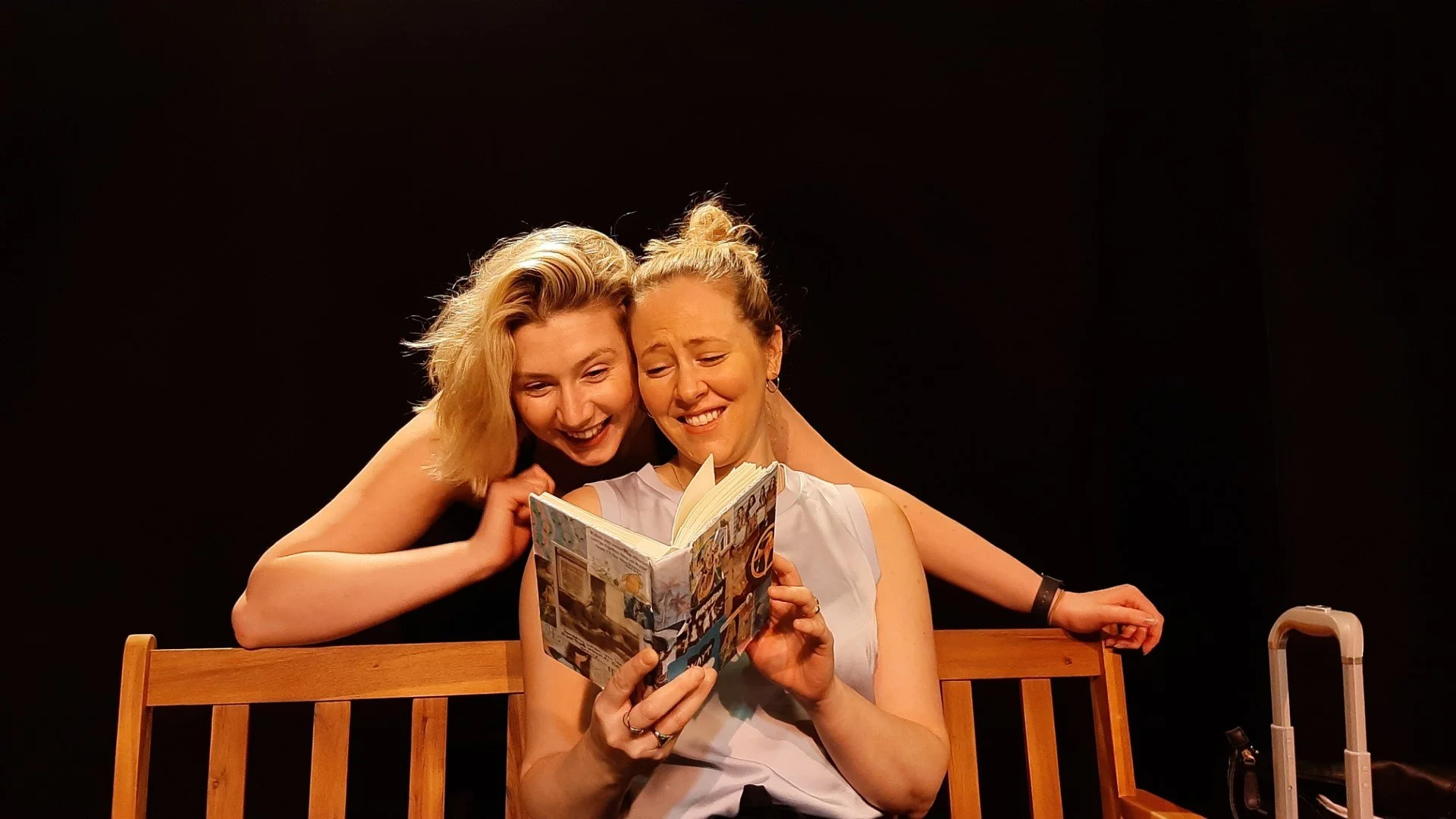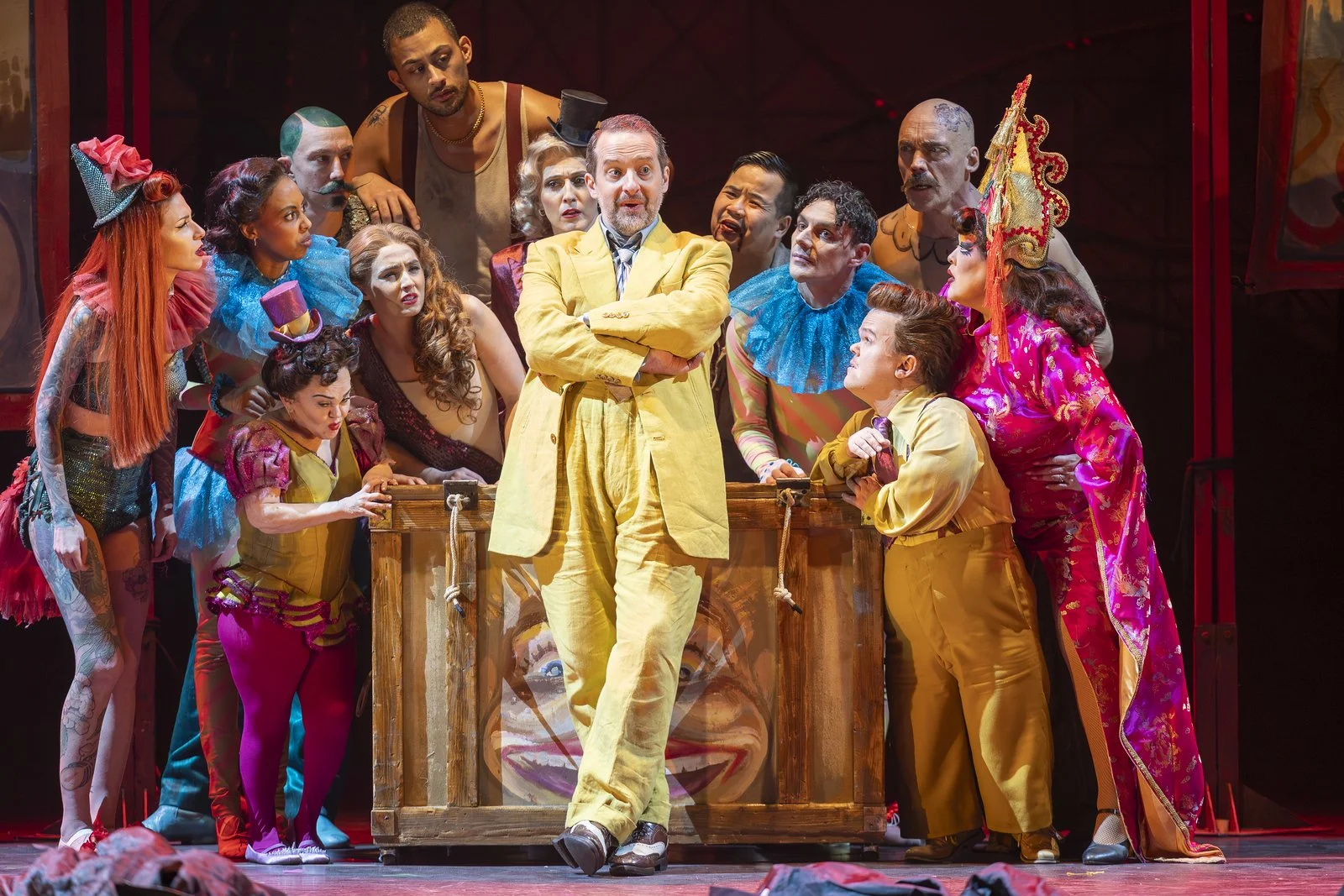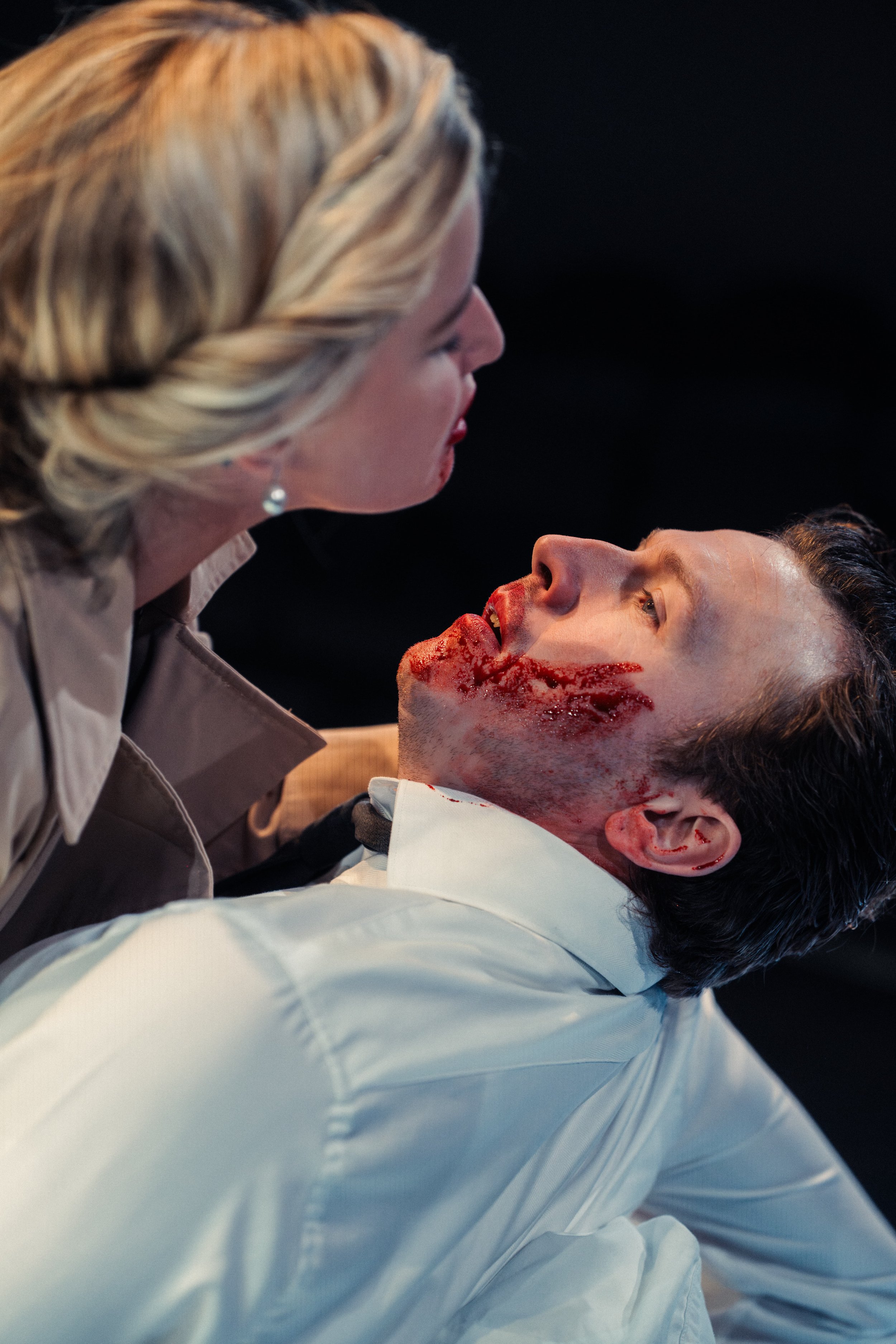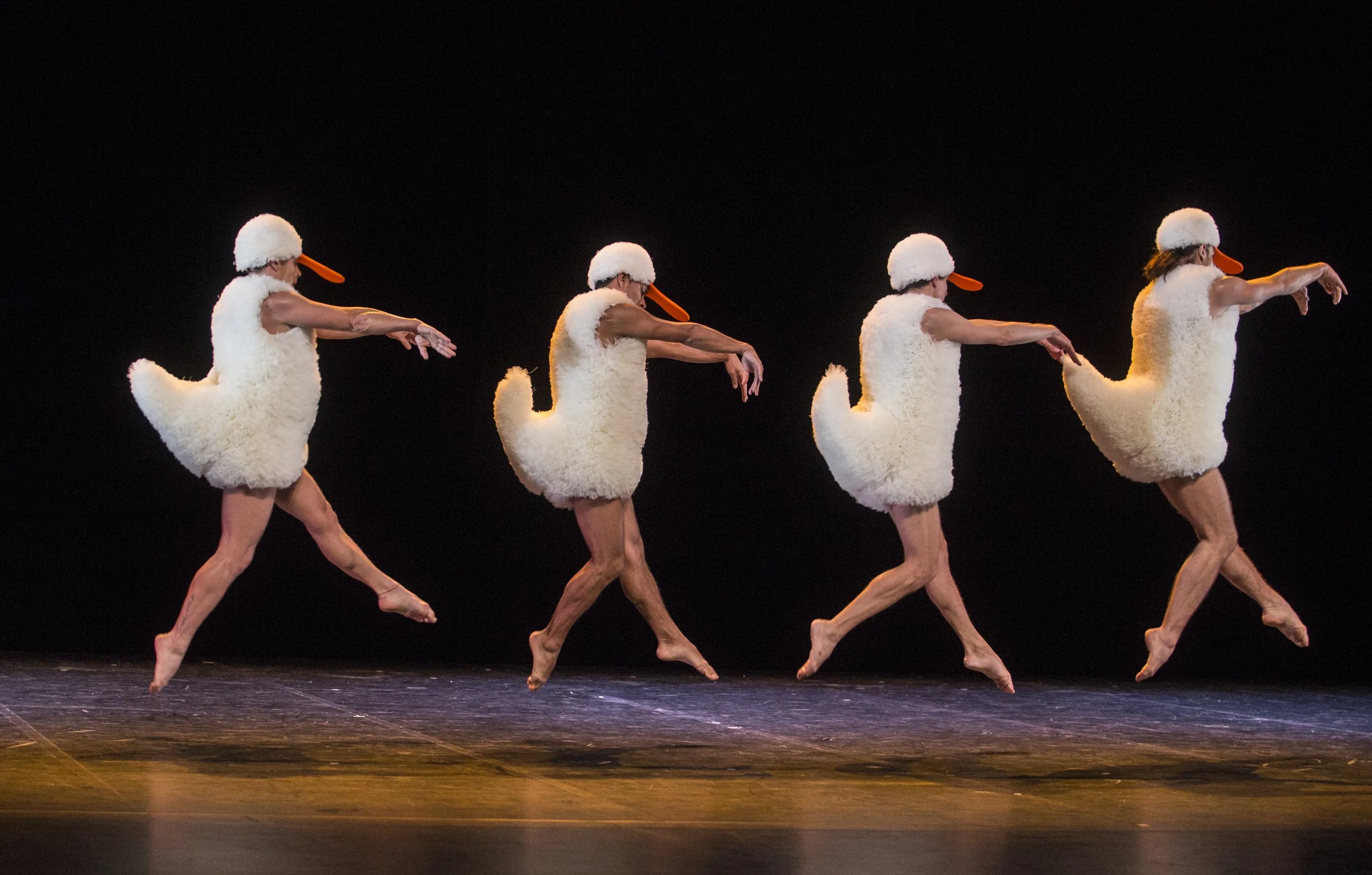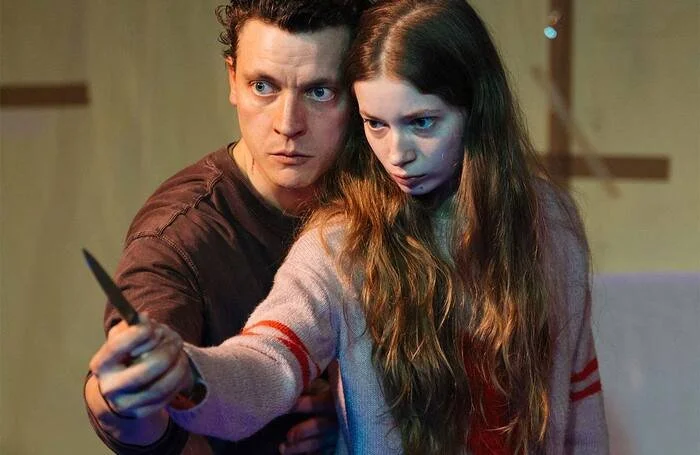The Glass Menagerie, Rose Theatre Kingston Review
Photo by Marc Brenner.
Reviewed by Charlotte for Theatre and Tonic.
*Disclaimer: Gifted tickets in return for an honest review
Atri Banarjee’s electric new production of Tennessee Williams’ classic The Glass Menagerie is a staunch departure from the parlour drama aesthetics that have characterized many previous iterations. One glimpse of the stage is all you need to deduce that much. Despite Williams’ (in)famously intricate descriptions of the Wingfield home, in Banarjee’s production you will find no sofa beds nor dining room tables, only a raked panel of glass situated under a monstrous neon sign: PARADISE. As the Wingfields manoeuvre atop this uneven surface, the message is clear: these memories are precarious, dangerous even. But as the perpetual rotation of the looming lighted sign above them seems to portend – you cannot stop the world from turning anyway.
Williams’ coined The Glass Menagerie as a ‘memory play’ when he first composed it in 1944, and it is widely considered to be the piece that cemented his fame. In it, he treads the line between the naturalistic style American audiences were accustomed to and the expressionist style emerging overseas in Europe by pulling Tom out of the action to double as a narrator looking back at his past. So, as this play has been toying with style since its inception nearly eighty years ago, it seems quite fitting that Banarjee’s production brings that legacy into a modern light.
Borrowing from another great movement of European theatre, Banarjee introduces a Brechtian flavour to his production. Indeed, this Glass Menagerie has the makings of an epic with its use of symbolic, non-naturalistic design and alienating use of stand microphones. While Williams may not have been historicizing when he wrote the play, Banarjee certainly asks today’s audience to look in the mirror of 1940s America and question what they see in the glass. At first glance, the story is dated – a disabled, neurodivergent young woman infantilized by her mother and a young man yearning to escape the monotonous work of responsibility. Dreams that are made impossible by the world we inhabit are what Banarjee reflects with his epic staging, and suddenly, the story feels much closer.
Despite the laborious wordiness of Williams’ text, the company all give stand-out performances, delivering each and every word with carefully maintained energy and impressive American dialects. Kasper Hilton-Hille is especially brilliant in his dark yet heartfelt portrayal of Tom. With every bit of narration, he holds the audience in the palm of his hand while toying with the flame of his lighter with the other.
But Tom is not played by Hilton-Hille alone. His memory world is constructed masterfully by lighting designer Lee Curran and sound designer Giles Thomas. The sensory experience of remembering is beautifully evoked by Curran’s lights, a motif of rainbows emerging in candy-coloured neon lights and a candlelit romance that will not be illuminated by an anxiety-inducing circle of live flames. And while ‘the fiddle in the wings’ plays hauntingly, Thomas’s sonic landscape extends far beyond an emotional underscore to room-shaking revelations and voices which dissolve into echoes like the fuzzy bits in the corner of your mind.
Tight as Banarjee’s production is, it cannot completely escape the verbosity of Williams’ writing nor the resulting scenes that can drag on longer than the average audience member’s attention span. At two hours and forthy-five minutes running time, there are certainly moments when you might wish for a bit more movement to keep the pace from flagging.
Still, on a stage encircled by a sweeping array of little glass animals, Banarjee’s production is one that casts a bold new light on an American classic, one where Tom’s memories may be narrated, but they appear in the image of Laura’s mind. By putting the world of the play inside Laura’s collection, she gains a kind of quiet agency that is refreshing against the backdrop twentieth-century ableism. On the whole, this Glass Menagerie shines through a prism, and the resulting refraction is a testament to the potential within ageing canons when directors are brave enough to smash them into pieces.
Tour dates include until 4 May at Rose Theatre, 7-11 May Bristol Old Vic, 13-18 May Theatre Royal Bath and Alexandra Palace 22 May - 1 June.


